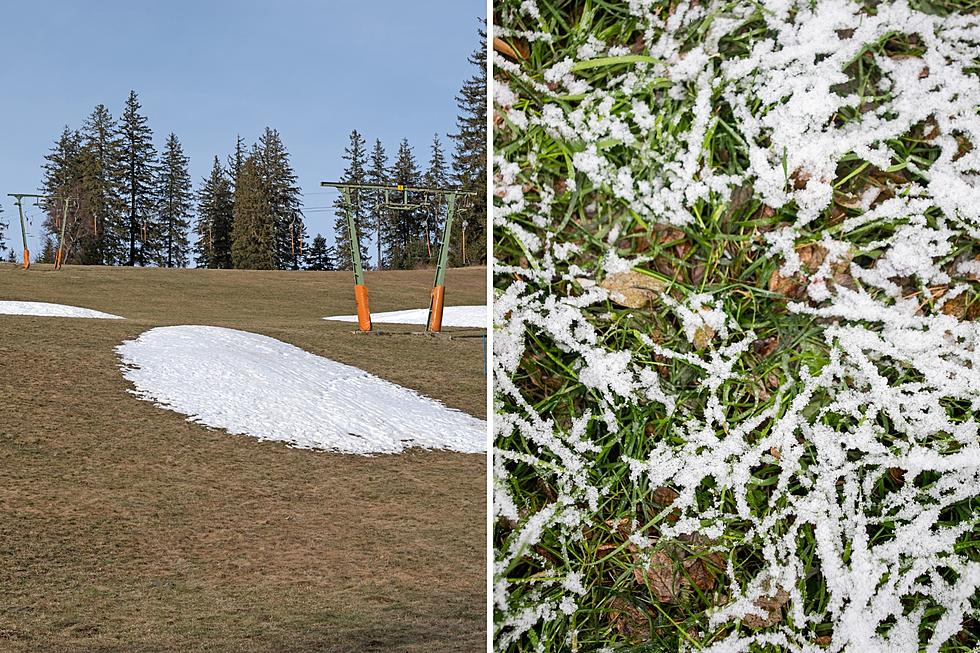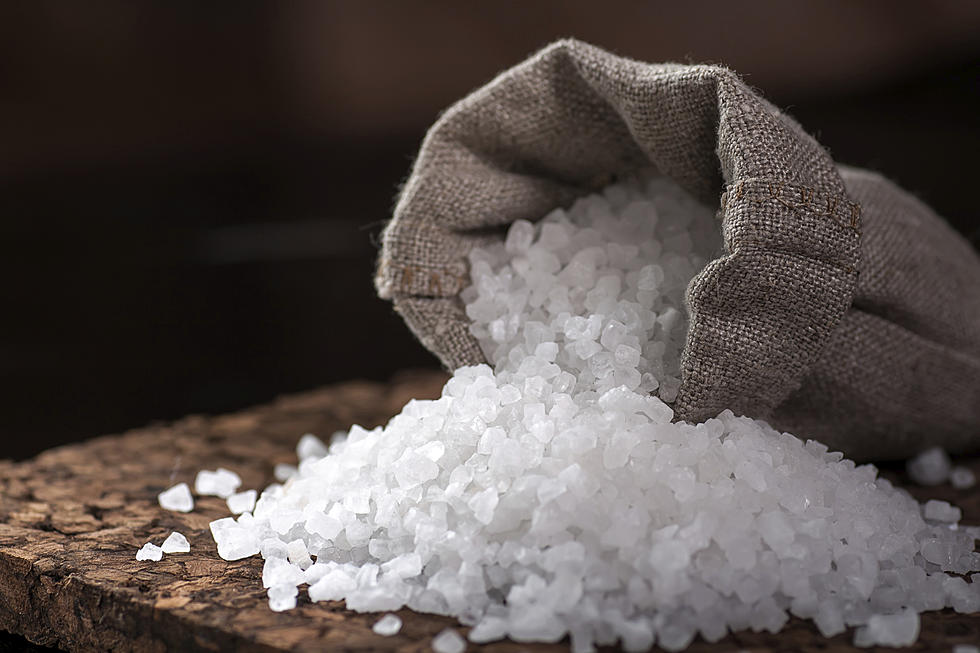
Exclusive: DOT Chief on the Salt Shortage
Jim Simpson, commissioner of New Jersey's Department of Transportation said today's snow and ice storm presents "worse" problems for the state than the post-Christmas storm of 2010, in part because this unusually severe winter is forcing some tough choices in deployment of limited road salt supplies.
In an exclusive interview with Townsquare's Eric Scott Thursday morning, Simpson said: "I know some municipalities are without salt but as the DOT commissioner I would rather have my family in a car on a local municipal street and maybe have a fender bender than on a state road or an interstate and tangle with a tractor trailer at 40 miles per hour."
"We do have salt, you know, for the Interstates, for the turnpike, parkway, state roads, emergency routes," Simpson said. "The counties are getting resupplied, some municipalities are getting resupplied. People are getting resupplied but they've really got to be strategic in how they use the salt. You know, salt hills first and dangerous roads and things like that."
But the supply chain and the "lead time" from origin to delivery, is the bigger problem, the DOT commissioner said, and it extends well beyond New Jersey.
"You got to get the salt out of the ground. Most of it comes from Chile and it's 21 days on a ship," Simpson said. The industry did not anticipate the need this winter has created, he added. "It's the entire industry and the shortage goes all the Illinois, down to Maryland, up to Massachusetts."
Simpson said, "The salt companies can only keep the salt, let's say for two years. And then it really sort of goes bad. That's number one. Number two: the margins are very thin in that industry. Number three, they've got to borrow a lot of money to keep supplies and they don't know that's going to sell. So they got caught short and you just can't get it out of the ground and get it here. So you've got a logistics problem from the shipping standpoint."
Listen to DOT Commissioner Jim Simpson's interview with Eric Scott
Discussing the current supply chain problems in more detail, he said, "We've got boats identified in the Great Lakes region but the St. Lawrence Seaway is frozen-- you can't get it down and there's no rail node there. We've got salt that we've identified in areas like Rochester that has to be trucked down. We need 450 grain trailers to bring it down but you can't find one truck available to move the salt so we're looking at alternate choices."
The complexity of today's storm is also a big factor, Simpson said.
"We are keeping up with it but my concern is that once this sleet picks up and the rain and then it's going to transfer back to snow and they're talking about more snow tonight, followed by another system coming in tomorrow night," he said. "The concern is flooding and icing after hours because the temperatures will drop again."
Simpson said the storm drains "on the local streets, on the interstates, and the parkways and the state roads and like are all covered up, so where does the water go? So we're going to see some flooding and freezing."
Late Wednesday, right before the flakes started flying, Secaucus mayor Michael Gonnelli was told two new shipments of road salt had just been delivered.
"We were fortunate today and I had my fingers crossed, I was praying all night that it would happen," Gonnelli said. "It's not easy coming and it seems to me that they're rationing it -- they're giving it a little bit to each of us."
Mary Goepfert, a spokeswoman for the New Jersey Office of Emergency Management, said the agency will listen to concerns about the salt shortage.
"If anyone is at a critical juncture, we would work with them and work with the DOT to let them know that there are issues in that area," Goepfert said.
She added, if municipal officials indicate they do not have adequate supplies of road salt to keep the streets clear, officials will work together to make ensure public safety.
"Public safety officials will work together with the emergency management officials, with public works, with the different departments in town to make decisions that will be in the best interest of public safety," Goepfert said.
Meanwhile Gov. Chris Christie was monitoring the situation very closely overnight.
"I know that a lot of municipalities are challenged right now in terms of salt, as are some of the counties, as is the state because this has been a brutal winter where it's never really gotten warmer," Christie said Wednesday, "so the natural melting away of snow and ice has not happened and so we've been using, at every level of government, more and more salt."
Christie assured the public that "we're continuing to work to get more salt into the state, to be able to utilize it to be able to help to make travel here safer."
In Mercer County, county executive Brian Hughes said so far no major problems have occurred.
"We have about 550 tons of salt, and that's about what we use in a major storm like this, so we believe we'll be okay," Hughes said. "Obviously, we'll be anxious to get more salt in."
Even at the shore, where snow totals have been lower than other parts of the state, salt supplies have dwindled.
"Hopefully we'll be okay," said Toms River mayor Tom Kelaher. "They tell me they have another 2,000 tons on the way -- it's not here yet and I hope it shows up -- you know there's such a widespread demand for it over such a wide area, it's never really happened in my recollection."
All in all, this winter of 2013-2014 has DOT chief Simpson feeling like "a bowling pin with a bowling ball coming down the alley-- every other day we've got something thrown at us with the winter weather."
Most New Jerseyans would probably agree.
David Matthau contributed to this report.
More From New Jersey 101.5 FM









